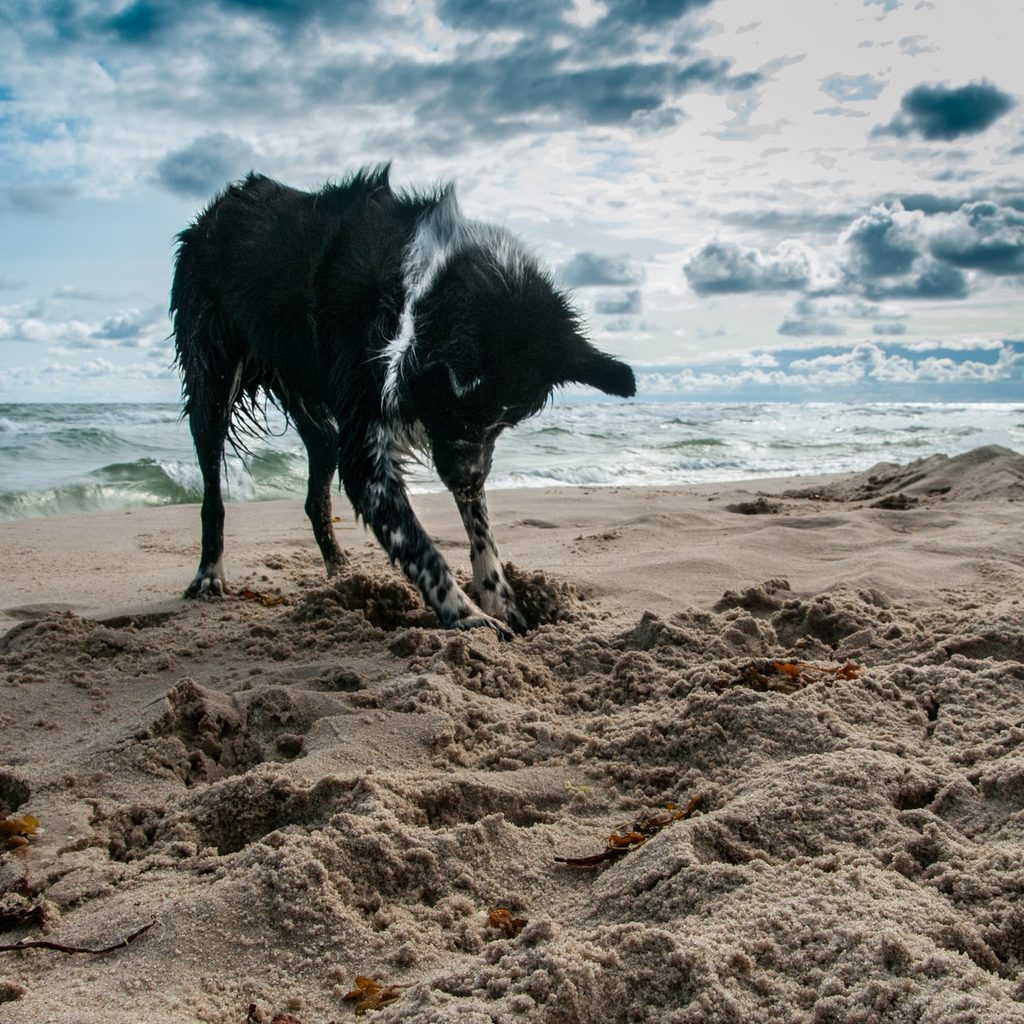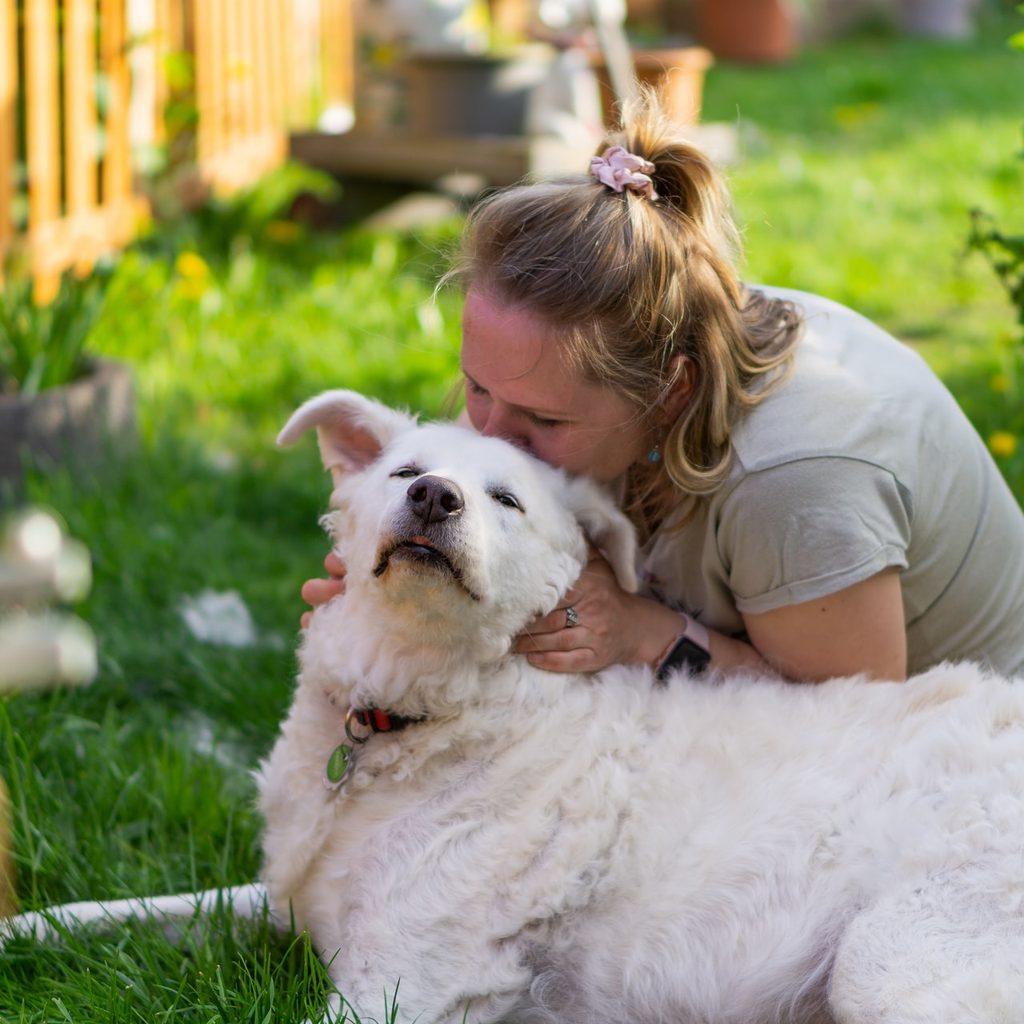Muddy paws and dirty floors. Disappearing dog toys and personal items. A new hole in your yard every day. What’s a pet parent to do with a dog who digs?
The situation is frustrating, to say the least, and can even be concerning in some situations. Besides creating a backyard that looks like a piece of Swiss cheese, your dog probably also has some behavioral issues that need to be addressed for his safety as well as your peace of mind. This is what you should do when your dog won’t stop digging.

Why do dogs dig?
As frustrating as it is, this behavior is quite common for a variety of reasons:
- It’s instinctual, especially in dogs with high prey drives such as terriers and dachshunds who were bred to dig small animals out of their burrows. Plus, digging is a behavior your dog’s wolf ancestors passed down to him. In fact, many wild dogs live in dens they’ve dug. If your domesticated pup doesn’t dig in the yard, you may have noticed him digging in his bedding to get it situated just right before he lies down.
- It’s fun — and a great way to relieve stress. Dogs who are bored will create their own activities to stay occupied, and digging is one of the most popular. Those who experience bouts of separation anxiety are also more prone to developing an excessive digging habit as a coping mechanism.
- The grass is greener on the other side. If your dog has wanderlust, he might find the confines of the backyard too restrictive, especially if he sees something he wants to chase or can smell something intriguing he wants to investigate. Digging a hole under the fence might be the fastest way to get what he wants.
Breeds that like to dig
Your dog’s breed has a lot to do with how successful you’ll be in preventing him from digging in your yard.
Dogs with high prey instincts, such as beagles, Doberman pinschers, Siberian huskies, and Yorkshire terriers, can’t help going after small animals they can hear or smell that live underground.
Other dog breeds, such as Airedales, golden retrievers, and miniature schnauzers, like to hide their belongings for safekeeping. Sometimes that means digging a hole in the ground to store their valuables and keep them from harm.

How to stop the digging
Although you may not be able to stop your dog from digging completely, you can certainly minimize the behavior. Here are a few tips:
- Supervise your dog when he’s in the yard. If he begins to dig when you’re present, gently redirect his attention. He’d probably be more interested in playing with his favorite human than digging a new hole in the yard, anyway.
- Remove the temptation. If your dog has a strong prey drive and is digging excessively in your yard, you may have a rodent problem. Look for natural deterrents to drive them away so your dog doesn’t have anything to hunt. If he has a tendency to bury his belongings or treats, don’t allow him to take them outside.
- Landscape strategically. Take note of where your dog likes to dig and create natural barriers like shrubbery and landscaping rock in those areas. Designate an area where he’s allowed to dig and fill it with sand or another loose substrate. If he likes to dig a hole to lie in when the temperatures rise, provide a cool place for him to get out of the sun and cool off.
- Increase his physical activity and provide mental stimulation. For most dogs, a 20- to 30-minute daily walk gives them both. Walking gives them the physical activity they need, while sniffing their favorite places along the way provides mental stimulation. (As always, consult with your veterinarian to see what activity level she recommends for your dog’s age and health.)
Listen, we all have guilty pleasures, and our dogs aren’t any different. In the case of excessive digging, the key is to find creative, positive ways to redirect your dog’s attention and minimize the reasons he feels compelled to dig. Determine why your dog is wrecking the yard, then formulate a plan to minimize the damage. Just remember, your dog responds best to positive reinforcement when he’s learning something new, so be patient. Practice forgiveness when he has a setback. Bad habits are hard to break. If you make it worth his while to spend his energy elsewhere, both your backyard and your sanity will benefit.



